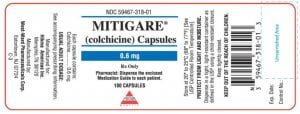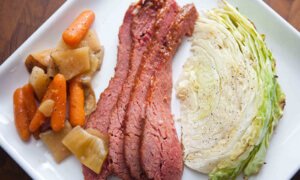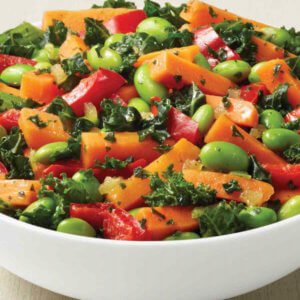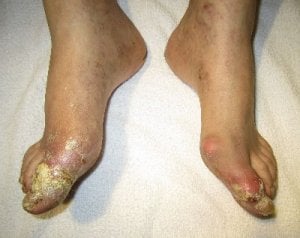Gout sufferers ask “is sugar bad for gout?” every day. There are definitely bad effects of excess sugar. But there are also bad effects of the wrong approach to gout diet.
Before I summarize the right approach to gout foods, I will explain some relevant facts about gout and sugar.
First, I should explain that sugar is a general term for several sweet-flavored carbohydrates. Food labels often refer to total sugars. These are commonly sucrose, glucose, and fructose. However, when we refer to sugar, it is usually sucrose, and that is what I am referring to here. It is the white crystalline sweetener that we commonly use in baking, sprinkling, and sweetening drinks.
Gout and Sugar Studies
The bad news is, I cannot find any specific gout and sugar studies. There are some relevant studies, but they all relate to sugar and uric acid. This means that healthy volunteers have been investigated rather than gout patients. The results are relevant to all gout sufferers, but it is always best to use at least some gout patients to compare different reactions between gout and non-gout groups. My reviews of the three relevant studies are based on the published abstracts.
The first study about the effects of sugar on uric acid goes back to 1980[1]. In the trial, two groups had either starch or sucrose as 30% of their calorie intake for 6 weeks. Towards the end of the trial, a sucrose load was administered. The investigation reveals:
Serum uric acid was significantly higher […] before and at all times after the sucrose load when subjects consumed the sucrose versus the starch diet.
In 1983, an investigation into carbohydrate-sensitive people also looked at the effects of sugar on uric acid[2]. This study compares diets of 5, 18, or 33% sucrose. They note that uric acid levels increase with increasing sugar consumption.
Finally, in 2008, a study looks at sugar and uric acid, along with the effects of acarbose, which is a common antidiabetic drug[3]. They report that sucrose at 1.5g/kg (about 1 quarter ounce per 10 pounds weight) increased uric acid by 10%.
Is Sugar Bad for Gout?
These sugar and gout studies show that it is more than likely that sugar raises uric acid and is therefore best limited. However, that does not mean that you need to avoid sugar completely. The sensible approach to gout diet is to first look at what you eat in total. You can then analyze your total daily intake to see if you are eating too much sugar.
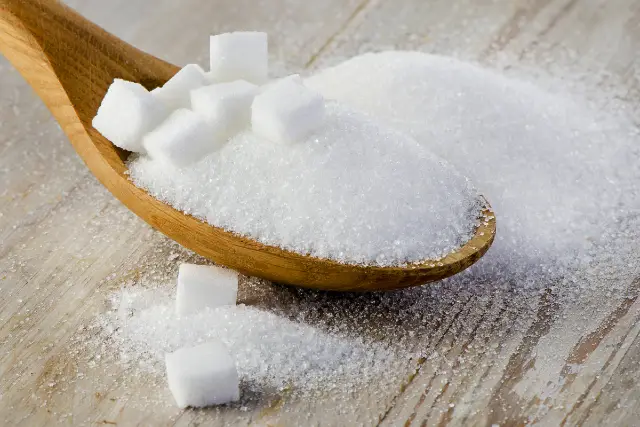
Is Sugar Good for Gout?
Unless you have other medical reasons besides gout, you should be able to enjoy some sugar in your diet. Always be careful when adding sugar to other foods. Many processed and prepared foods contain more than enough sugar, without adding more. Also remember that excess calories will make gout worse. If your calorie intake is too high, the best way to lower it is to avoid unnecessary sugar.
Leave Is Sugar Bad for Gout to browse Foods To Avoid with Gout guidelines
Is Sugar Bad for Gout Related Topics
Please remember: to find more related pages that are relevant to you, use the search box near the top of every page.
Common Terms: best, sugar, trigger
Other posts that include these terms:
- Gout Foods Table for Meat
- Foods High in Uric Acid Chart
- What Foods Cause Gout?
- Fish You Can Eat With Gout
- Best Drink For Gout – What’s Yours?
- Gout & Cereal
- Gout Foods Table for Cereals
Is Sugar Bad for Gout References
- Solyst, Joy T., Orho E. Michaelis IV, Sheldon Reiser, Kathleen C. Ellwood, and Elizabeth S. Prather. “Effect of dietary sucrose in humans on blood uric acid, phosphorus, fructose, and lactic acid responses to a sucrose load.” Annals of Nutrition and Metabolism 24, no. 3 (1980): 182-188.
- Israel, Karan D., Otho E. Michaelis IV, Sheldon Reiser, and Mark Keeney. “Serum uric acid, inorganic phosphorus, and glutamic-oxalacetic transaminase and blood pressure in carbohydrate-sensitive adults consuming three different levels of sucrose.” Annals of nutrition and metabolism 27, no. 5 (1983): 425-435.
- Moriwaki, Y., T. Kobayashi, T. Inokuchi, A. Yamamoto, S. Takahashi, T. Ka, Z. Tsutsumi, and T. Yamamoto. “Acarbose alleviates rise in plasma uric acid concentration induced by sucrose ingestion.” International journal of clinical pharmacology and therapeutics 46, no. 4 (2008): 187-192.
Please give your feedback
Did this page help you? If yes, please consider a small donation. Your donations help keep GoutPal's gout support services free for everyone.
If not, please tell me how I can improve it to help you more.
- YouTube
- The gout forums.



